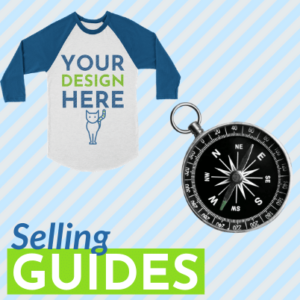Ecommerce SEO Tips to Sell More
When you want to sell more products online, you need a rock-solid SEO strategy to make sure people find their way to your store and, more importantly, stay & buy your products. Social media & paid ads can help, but they don’t replace good SEO. Research shows that 68% of online experiences begin with a search engine.
You can capture your own organic traffic & lay the foundation for your ecommerce store’s success with some consistency, persistence, & best practices in mind. Here’s where to start your SEO journey.
Research the Right Keywords
Selecting effective keywords that align with search intent & your product descriptions could dramatically enhance your organic traffic. Search intent is about what a consumer is looking for & the context of their search.
For example, you may discover the keyword “soft bed pillows” ranks well in tools including Keysearch or SEM Rush. However, a consumer is probably searching for a more comfortable way to sleep, not for the decorative pillows you’re selling as a way to dress up someone’s bed.
The goal is to find competitive keywords that rank well but aren’t so competitive that juggernauts like Amazon are crushing you for those terms. As you create a list of keywords, consider the search intent & see which websites also rank for that term to help shape your strategy.

Get Strategic About Your Product Descriptions
Once you’ve determined which keywords are the most likely to convert to a sale, start incorporating those terms into your product descriptions. Avoid keyword stuffing or over-using terms & making the copy sound unnatural. Instead, you should naturally weave in the keywords & make them easy to read & understand.
Beyond getting those keywords just right, zero in on the benefits of your products & how they help your buyers. Keep your copy snappy & engaging, but short is usually best. Google also favors original content, so avoid duplicating product descriptions & write something fresh.
Get tips for writing product descriptions for your ecommerce store.

Use Image Alt Text for Your Images
Many content creators & online stores skip over alt text & miss out on valuable opportunities during search engine crawls. It’s easy to enter text into the “alt text” field when you upload an image to help strengthen your SEO & keep your photos & graphics as organized as possible.
Keep in mind there’s also a bigger purpose to alt text than boosting your SEO. The alt text provides context for people with visual disabilities to understand the image. Make sure to accommodate their needs & not just stuff the alt text with keywords.
Improve Your Site Speed
Site speed may have nothing to do with your keywords & site structure, but it still significantly impacts your SEO. Google favors sites with fast load times & low bounce rates. When a consumer shows up at your ecommerce store, waits too long, & bounces off your site, Google notices & could downgrade your ecommerce store’s ranking.
Although high-quality images are essential to selling products online, they should still be able to load on your site quickly. Check your photos, graphics, & embedded media to see how quickly it loads. The extra effort could pay off big. Research shows that the first five seconds of page-load time have the highest impact on conversion rates. Yet for each additional second, website conversion rates drop by an average of 4.42%.
Add More Videos
Google & shoppers agree that they want more videos from their online experience. Research shows that consumers are twice as likely to purchase something after viewing a product video than they are otherwise. Videos also help keep people on your site longer, which improves your bounce rate & shows Google you’re offering value to your audience.

Focus on Backlinks
Backlinks, also called inbound links, are links from one website page to another website’s page. Search engines look at backlinks as a form of social proof or votes that a page is worthwhile. The more natural backlinks you have, the higher your site will likely rank.
Some online businesses try to cut corners & buy links or artificially inflate their backlinks. It may work briefly, but Google eventually figures it out & will de-rank the site, making it difficult to gain traction again. Any backlinks should come from trusted, authoritative websites that are well-established. In other words, spammy sites without a significant rank in Google won’t get you very far in your SEO efforts.
Simplify Your URL Structure
The URL structure of your pages isn’t as crucial to SEO as it was just a decade ago, but it is still helpful & can improve the organization & navigation of your ecommerce store. The concept is straightforward–make your URLs intentional & easy for your customers & the search engines to understand & navigate.
Here are some poor examples of URL structure:
- /the-best-men-hoodies-blue-and-white-2023
- /pretty-sea-glass-green-bracelet-jewelry-new
- /pooch-treats-in-Ohio-preservative-free-tasty7
.. & here are a few good examples of how to approach your URL structure:
- /custom-men-hoodies
- /sea-glass-bracelets
- /natural-dog-treats

Get Rid of Zombie Pages
Those old, untouched pages no one is visiting? They aren’t doing much for your ecommerce store. Also called Zombie Pages, they generate little to no traffic but are still occasionally crawled by search engines. If you have pages that are at least a year old with no traffic, you can go ahead & archive, unpublish, or delete them.
Similar to zombie pages, content that doesn’t provide any value & isn’t doing much for your customers should also go. Get rid of any old, uninteresting blog posts & skimpy pages with little content or visuals.
Leverage Your Ecommerce Platform’s Tools
Whether you sell on Shopify or WordPress, there are tools to help simplify & bolster your SEO efforts. Look for plugins, including Yoast & SEO Optimizer, to help determine if your page is SEO–friendly, where it needs improvements, & what to do to improve your results.
If you’re on a budget, you’re in luck. Most plugins offer a free trial or “freemium” model with fewer bells & whistles than the premium version, making them a cost-effective way to get serious about your SEO.
What are your best ecommerce SEO tips to sell more? Let us know in the comments below!


